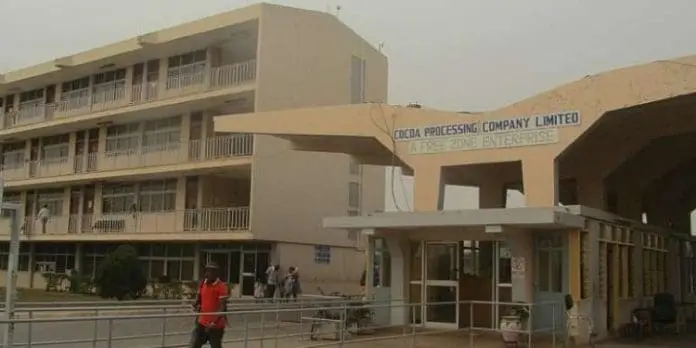Copyright ghanamma

Ghana must learn from Ivory Coast’s successful cocoa processing model to transform its struggling industry into a profitable venture, according to a recent policy brief by IMANI Africa. The think tank argues that neighboring Côte d’Ivoire has created an enabling environment that makes local cocoa processing both sustainable and profitable. Cocoa revenues have built schools, roads, and livelihoods in Ghana for decades, yet the country remains trapped in a cycle of unprofitability when processing beans into finished products. Companies like the Cocoa Processing Company (CPC) continue experiencing losses despite soaring global demand for chocolate and cocoa-based products. Côte d’Ivoire’s processors enjoy predictable access to beans, lower energy tariffs, and deliberate government policies linking them directly to global buyers. This integrated structure prevents companies from struggling to secure raw materials or battling unpredictable costs. The supportive framework attracts investments from multinational firms seeing long-term stability in Ivory Coast’s cocoa sector. IMANI Africa characterizes this approach as deliberate coordination between state policy and private investment rather than accidental success. Ghanaian processors operate under uncertainty and high-cost conditions that diminish processing rewards. The policy brief highlights how this contrasting environment creates disadvantages for domestic companies attempting to add value to locally grown cocoa. The Cocoa Processing Company embodies Ghana’s cocoa paradox, according to IMANI’s analysis. Originally envisioned to lead the country’s value addition drive, CPC has become a cautionary tale of how politics and inefficiency can cripple promising businesses. Multiple internal weaknesses plague the state-owned enterprise, including political interference, inefficient management, and sluggish decision-making. These problems combine with broader industry challenges like high energy tariffs and raw material shortages to keep the company in perpetual decline. CPC produces finished goods such as chocolate and beverages, going beyond the semi-finished products like cocoa liquor and butter that private processors typically focus on. This ambition carries steep costs because manufacturing finished items requires importing inputs like sugar, milk, and packaging materials. Taxes, import duties, and currency depreciation have made these imported inputs expensive. The company faces heavier expenses, delayed state support, and competition in a market too small to absorb its finished products. IMANI argues the problem extends beyond CPC’s internal weaknesses to encompass the entire system within which processors operate. Ghanaian cocoa processors face high financing costs, limited access to beans, and weak policy support across the industry. The result creates an industry surviving on government bailouts rather than business efficiency. Without reform, Ghana will continue exporting raw beans while other countries capture real value including jobs, technology, and revenue. The way forward involves replicating Ivory Coast’s success through specific measures. Ghana must ensure processors have steady access to quality beans by setting aside domestic allocations before exporting. Energy costs require review to make processing more competitive in regional and global markets. Government policies must link local processors to international buyers to guarantee demand for finished and semi-finished products. State-owned enterprises like CPC must be depoliticized and managed with clear performance benchmarks. This reform would reduce political interference that currently hampers operational efficiency and strategic decision-making. IMANI’s brief provides both diagnosis and direction for addressing the cocoa processing crisis. The think tank emphasizes that solutions exist based on proven models operating successfully across Ghana’s western border. Côte d’Ivoire’s achievement demonstrates that African countries can profitably process cocoa domestically rather than serving merely as raw material suppliers. The neighboring nation’s experience offers practical lessons about policy frameworks supporting value addition. Ghana’s cocoa processing struggles persist despite government support spanning decades. The contradiction between being a major producer and failing at profitable processing reflects systemic rather than isolated problems. Global chocolate and cocoa product demand continues growing, presenting opportunities for countries that successfully navigate processing challenges. Ghana risks missing this expanding market by maintaining current unprofitable operations. The policy brief suggests that addressing these issues requires coordinated action across multiple fronts simultaneously. Piecemeal reforms targeting individual problems will prove insufficient without comprehensive system restructuring.



